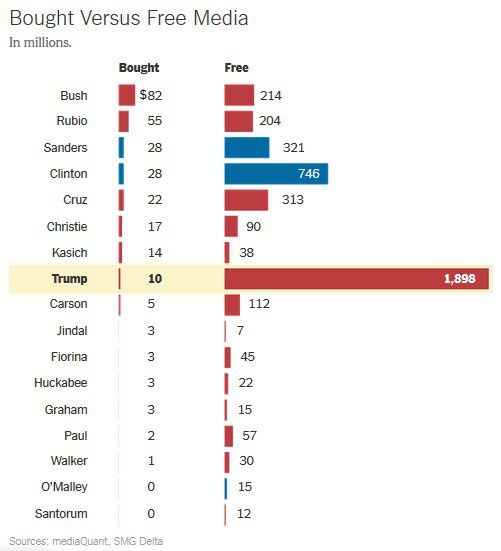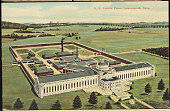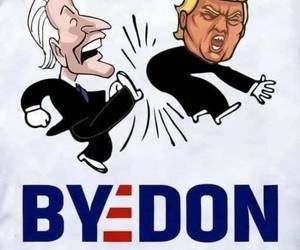Thumbnail History of Journalism in the USA
Jul 7, 2021 17:57:25 #
slatten49
Loc: Lake Whitney, Texas
Before the rise of professional journalism in the early 20th century and the conception of media ethics, newspapers reflected the opinions of the publisher. Frequently, an area would be served by competing newspapers taking differing and often radical views by modern standards. In colonial Philadelphia, Benjamin Franklin was an early and forceful advocate for presenting all sides of an issue, writing, for instance, in his "An Apology For Printers" that "... when t***h and error have fair play, the former is always an overmatch for the latter."
In 1798, the Federalist Party in control of Congress passed the Alien and S******n Acts designed to weaken the opposition press. It prohibited the publication of "false, scandalous, or malicious writing" against the government and made it a crime to voice any public opposition to any law or p**********l act. This part of the law act was in effect until 1801.
President Thomas Jefferson, 1801–1809, was the target of many venomous attacks. He advised editors to divide their newspapers into four sections labeled "t***h," "probabilities," "possibilities," and "lies," and observed that the first section would be the smallest and the last the largest. In retirement he grumbled, "Advertisements contain the only t***hs to be relied on in a newspaper."
In 1861, Federal officials identified newspapers that supported the Confederate cause and ordered many of them closed.
In the 19th century, the accessibility of cheap newspapers allowed the market to expand exponentially. Cities typically had multiple competing newspapers supporting various political factions in each party. To some extent this was mitigated by a separation between news and editorial. News reporting was expected to be relatively neutral or at least factual, whereas editorial sections openly relayed the opinion of the publisher. Editorials often were accompanied by editorial cartoons, which lampooned the publisher's opponents.
Small ethnic newspapers serviced people of various ethnicities, such as Germans, Dutch, Scandinavians, Poles, and Italians. Large cities had numerous foreign-language newspapers, magazines and publishers. They typically were boosters who supported their group's positions on public issues. They disappeared as their readership increasingly became assimilated. In the 20th century, newspapers in various Asian languages, and also in Spanish and Arabic, appeared and are still published, read by newer immigrants.
Starting in the 1890s, a few very high-profile metropolitan newspapers engaged in yellow journalism to increase sales. They emphasized sports, sex, scandal, and sensationalism. The leaders of this style of journalism in New York City were William Randolph Hearst and Joseph Pulitzer. Hearst falsified or exaggerated sensational stories about atrocities in Cuba and the sinking of the USS Maine to boost circulation. Hearst falsely claimed that he had started the war, but in fact the nation's decision makers paid little attention to his shrill demands—President McKinley, for example, did not read the yellow journals.
The Progressive Era, from the 1890s to the 1920s, was reform-oriented. From 1905 to 1915, the muckraker style exposed malefaction in city government and industry. It tended "to exaggerate, misinterpret, and oversimplify events," and got complaints from President Theodore Roosevelt.
The Dearborn Independent, a weekly magazine owned by Henry Ford and distributed free through Ford dealerships, published conspiracy theories about international Jewry in the 1920s. A favorite trope of the anti-Semitism that raged in the 1930s was the allegation that Jews controlled Hollywood and the media. Charles Lindbergh in 1941 claimed American Jews, possessing outsized influence in Hollywood, the media, and the Roosevelt administration, were pushing the nation into war against its interests. Lindbergh received a storm of criticism; the Gallup poll reported that support for his foreign policy views fell to 15%. Hans Thomsen, the senior diplomat at the German Embassy in Washington, reported to Berlin that his efforts to place pro-isolationist articles in American newspapers had failed. "Influential journalists of high repute will not lend themselves, even for money, to publishing such material." Thompson set up a publishing house to produce anti-British books, but almost all of them went unsold. In the years leading up to World War II, The pro-N**i German-American Bund accused the media of being controlled by Jews. They claimed that reports of German mistreatment of Jews were biased and without foundation.[citation needed] They said that Hollywood was a hotbed of Jewish bias, and called for Charlie Chaplin's film The Great Dictator to be banned as an insult to a respected leader.
During the American civil rights movement, conservative newspapers strongly slanted their news about Civil Rights, blaming the unrest among Southern B****s on c*******ts. In some cases, Southern television stations refused to air programs such as I Spy and Star Trek because of their racially mixed casts. Newspapers supporting Civil rights, labor unions, and aspects of liberal social reform were often accused by conservative newspapers of c*******t bias.
In November 1969, Vice President Spiro Agnew made a landmark speech denouncing what he saw as media bias against the Vietnam War. He called those opposed to the war the "nattering nabobs of negativism."
Starting in the 21st century, social media became a major source of bias, since anyone could post anything without regard to its accuracy. Social media has, on the one hand, allowed all views to be heard, but on the other hand has provided a platform for the most extreme bias.
In 2010, President Obama said that he believed the viewpoints expressed by Fox News was "destructive for the long-term growth" of the United States.
In 2014, Pew Research Center found that the audience of news was polarized along political alignments.
In late 2015, Donald Trump started his campaign while addressing his concern with the media, calling some information relayed in the media, "f**e news." This came shortly after the media began to critique Trump's statements. Information circulated regarding Trump's previous sexual comments made about women.
2016 and onward, reports concerning "f**e news" became more prominent. Social media played a big part in this and it is thought that the use of social media during the P**********l e******n played a large role in the e******n of Donald Trump.
In 1798, the Federalist Party in control of Congress passed the Alien and S******n Acts designed to weaken the opposition press. It prohibited the publication of "false, scandalous, or malicious writing" against the government and made it a crime to voice any public opposition to any law or p**********l act. This part of the law act was in effect until 1801.
President Thomas Jefferson, 1801–1809, was the target of many venomous attacks. He advised editors to divide their newspapers into four sections labeled "t***h," "probabilities," "possibilities," and "lies," and observed that the first section would be the smallest and the last the largest. In retirement he grumbled, "Advertisements contain the only t***hs to be relied on in a newspaper."
In 1861, Federal officials identified newspapers that supported the Confederate cause and ordered many of them closed.
In the 19th century, the accessibility of cheap newspapers allowed the market to expand exponentially. Cities typically had multiple competing newspapers supporting various political factions in each party. To some extent this was mitigated by a separation between news and editorial. News reporting was expected to be relatively neutral or at least factual, whereas editorial sections openly relayed the opinion of the publisher. Editorials often were accompanied by editorial cartoons, which lampooned the publisher's opponents.
Small ethnic newspapers serviced people of various ethnicities, such as Germans, Dutch, Scandinavians, Poles, and Italians. Large cities had numerous foreign-language newspapers, magazines and publishers. They typically were boosters who supported their group's positions on public issues. They disappeared as their readership increasingly became assimilated. In the 20th century, newspapers in various Asian languages, and also in Spanish and Arabic, appeared and are still published, read by newer immigrants.
Starting in the 1890s, a few very high-profile metropolitan newspapers engaged in yellow journalism to increase sales. They emphasized sports, sex, scandal, and sensationalism. The leaders of this style of journalism in New York City were William Randolph Hearst and Joseph Pulitzer. Hearst falsified or exaggerated sensational stories about atrocities in Cuba and the sinking of the USS Maine to boost circulation. Hearst falsely claimed that he had started the war, but in fact the nation's decision makers paid little attention to his shrill demands—President McKinley, for example, did not read the yellow journals.
The Progressive Era, from the 1890s to the 1920s, was reform-oriented. From 1905 to 1915, the muckraker style exposed malefaction in city government and industry. It tended "to exaggerate, misinterpret, and oversimplify events," and got complaints from President Theodore Roosevelt.
The Dearborn Independent, a weekly magazine owned by Henry Ford and distributed free through Ford dealerships, published conspiracy theories about international Jewry in the 1920s. A favorite trope of the anti-Semitism that raged in the 1930s was the allegation that Jews controlled Hollywood and the media. Charles Lindbergh in 1941 claimed American Jews, possessing outsized influence in Hollywood, the media, and the Roosevelt administration, were pushing the nation into war against its interests. Lindbergh received a storm of criticism; the Gallup poll reported that support for his foreign policy views fell to 15%. Hans Thomsen, the senior diplomat at the German Embassy in Washington, reported to Berlin that his efforts to place pro-isolationist articles in American newspapers had failed. "Influential journalists of high repute will not lend themselves, even for money, to publishing such material." Thompson set up a publishing house to produce anti-British books, but almost all of them went unsold. In the years leading up to World War II, The pro-N**i German-American Bund accused the media of being controlled by Jews. They claimed that reports of German mistreatment of Jews were biased and without foundation.[citation needed] They said that Hollywood was a hotbed of Jewish bias, and called for Charlie Chaplin's film The Great Dictator to be banned as an insult to a respected leader.
During the American civil rights movement, conservative newspapers strongly slanted their news about Civil Rights, blaming the unrest among Southern B****s on c*******ts. In some cases, Southern television stations refused to air programs such as I Spy and Star Trek because of their racially mixed casts. Newspapers supporting Civil rights, labor unions, and aspects of liberal social reform were often accused by conservative newspapers of c*******t bias.
In November 1969, Vice President Spiro Agnew made a landmark speech denouncing what he saw as media bias against the Vietnam War. He called those opposed to the war the "nattering nabobs of negativism."
Starting in the 21st century, social media became a major source of bias, since anyone could post anything without regard to its accuracy. Social media has, on the one hand, allowed all views to be heard, but on the other hand has provided a platform for the most extreme bias.
In 2010, President Obama said that he believed the viewpoints expressed by Fox News was "destructive for the long-term growth" of the United States.
In 2014, Pew Research Center found that the audience of news was polarized along political alignments.
In late 2015, Donald Trump started his campaign while addressing his concern with the media, calling some information relayed in the media, "f**e news." This came shortly after the media began to critique Trump's statements. Information circulated regarding Trump's previous sexual comments made about women.
2016 and onward, reports concerning "f**e news" became more prominent. Social media played a big part in this and it is thought that the use of social media during the P**********l e******n played a large role in the e******n of Donald Trump.
Jul 7, 2021 18:01:04 #
slatten49 wrote:
Before the rise of professional journalism in the ... (show quote)
Are these the same media who are dumping on trump now , everyday ?
Independent Media is real news.
Unadulterated, unfoxxed around with just the t***h to the highest standards they learned becoming a journalist.
Unlike the the cute and quaint faux Nouse
Talking heads.
Raw Story is not subsidized by rich oligarchs
They pay for their independent news individually.
Jul 7, 2021 18:06:01 #
slatten49
Loc: Lake Whitney, Texas
Milosia2 wrote:
Are these the same media who are dumping on trump now , everyday ?
They don't need to "dump" on him, as the man is his own worst enemy. They did, however, give him tons of free coverage during his 2016 campaign. Note date on below article...
https://www.thestreet.com/politics/donald-trump-rode-5-billion-in-free-media-to-the-white-house-13896916
Jul 7, 2021 18:48:48 #
slatten49 wrote:
They don't need to "dump" on him, as the man is his own worst enemy. They did, however, give him tons of free coverage during his 2016 campaign. Note date on below article...
https://www.thestreet.com/politics/donald-trump-rode-5-billion-in-free-media-to-the-white-house-13896916
https://www.thestreet.com/politics/donald-trump-rode-5-billion-in-free-media-to-the-white-house-13896916

Jul 7, 2021 18:56:23 #
Its interesting how little people pay attention to what’s reported and how. And I’m not speaking of conspiracy theories
Jul 7, 2021 19:07:29 #
Rose42 wrote:
Its interesting how little people pay attention to what’s reported and how. And I’m not speaking of conspiracy theories
Yup. Did you see Joe today stammering through 1 question about the latest cyber attacks?
We're toast. Donskie! America is no longer a bastion of freedom.
I reckon I'll have to live out the rest of my life in the smoldering remains of this once great nation.
I'll keep earning my own way as long as I can, and pray that some f*g doesn't molest my grandchildren. Or, that when Russia, and China get tired of squabbling over who owns us, they don't just straight up nuke us.
Jul 7, 2021 19:13:34 #
archie bunker wrote:
Yup. Did you see Joe today stammering through 1 question about the latest cyber attacks?
We're toast. Donskie! America is no longer a bastion of freedom.
I reckon I'll have to live out the rest of my life in the smoldering remains of this once great nation.
I'll keep earning my own way as long as I can, and pray that some f*g doesn't molest my grandchildren. Or, that when Russia, and China get tired of squabbling over who owns us, they don't just straight up nuke us.
We're toast. Donskie! America is no longer a bastion of freedom.
I reckon I'll have to live out the rest of my life in the smoldering remains of this once great nation.
I'll keep earning my own way as long as I can, and pray that some f*g doesn't molest my grandchildren. Or, that when Russia, and China get tired of squabbling over who owns us, they don't just straight up nuke us.
Copy That


Jul 7, 2021 21:00:39 #
slatten49 wrote:
Before the rise of professional journalism in the ... (show quote)
Great article Slatten49,
I would add a twist, a fact. Control of public opinion has been forced with coercion via "BOTS " and mass media giants via singular ownership.
In the past generation minus the last 15ish years there was a much higher percentage of "News reporting" and lower percentage of "Opinion". Bit that has shifted to majority "Opinion " which is sold as fact by un-named sources.
Now narratives can be spread in a matter of minutes throughout Google, Yahoo, Facebook, Twitter and dozens of other platforms.
The Bots---' Programmed to counter any apposite views using algorithms , even Programmed to use offensive verbiage.
Majority of Americans (all walks of life, politically views, social economic status) do not use critical thinking sk**ls, independent thinking and will fight to the death, to defend false narratives, lies from our government and those controlling the narrative.
Currently farms across Europe, South and North America are bursting with crops and yet a manufactured food shortage narrative (Man made G****l w*****g) with Interfering powers to the supply chain leaving farmers with crops that will be rotting on the ground. I leave this narrative not for argument of "G****l w*****g" rather to make a point of "Narrative " and for any reader in disagreement, the shelves are full of false Narratives to pull from.
Jul 8, 2021 07:38:19 #
Jul 8, 2021 07:44:17 #
slatten49
Loc: Lake Whitney, Texas
jack sequim wa wrote:
Great article Slatten49, br br I would add a tw... (show quote)
Thanks, Jack
 I appreciate your contributing to the thread,
I appreciate your contributing to the thread,
Jul 9, 2021 13:01:33 #
slatten49 wrote:
Before the rise of professional journalism in the ... (show quote)
No news organization reports unbiased news. Any who say someone else is biased but they are unbiased is trying to promote their own bias. Having a completely open forum to post any viewpoint is not destructive but rather healthy in challenging people to evaluate for themselves the value and accuracy of the news item. We do not need to be "protected" from the wrong narratives. The more viewpoints people are exposed to, the greater the chance that they will learn to evaluate effectively for themselves.
Jul 9, 2021 13:18:52 #
JoyV wrote:
No news organization reports unbiased news. Any w... (show quote)
Evaluating for themselves is not working very well as evidenced by the v***r f***d lie.
Jul 9, 2021 13:29:53 #
moldyoldy wrote:
Evaluating for themselves is not working very well as evidenced by the v***r f***d lie.
But there is not a free and open forum for people to be exposed to all viewpoints. There is censorship. If you only hear one viewpoint, or if you rarely hear another but are told by the majority viewpoint that all others are lies and conspiracy theories, you unlikely evaluate the differing viewpoints but simply discard them out of hand. Your mentioning of a v***r f***d lie is a good example. Have you reviewed the evidence before concluding it is a lie? Or did you simply accept the word of those with the viewpoint you have accepted in the past? I'm not telling you what to believe. I am asking you to evaluate the evidence before accepting a narrative. And others opinions are not evidence. And the common practice of accepting that the majority or the loudest is most often true, is actually counter to what we have seen historically. How many times in history has "everyone knows" been touted only to discover them to be wrong.
Jul 9, 2021 13:33:43 #
JoyV wrote:
But there is not a free and open forum for people ... (show quote)
The courts have deemed that the so called evidence is not evidence.
Jul 9, 2021 14:05:55 #
moldyoldy wrote:
The courts have deemed that the so called evidence is not evidence.
If you are referring to the v***r f***d cases, they have NOT said there was no evidence. They have refused to SEE the evidence and refused to hold evidentiary hearings which means the evidence can't be presented in court. Or simply refused to hear the cases at all.
But I was not referring to any particular item. I was writing in general about the importance of people to look for evidence themselves.
If you want to reply, then register here. Registration is free and your account is created instantly, so you can post right away.






